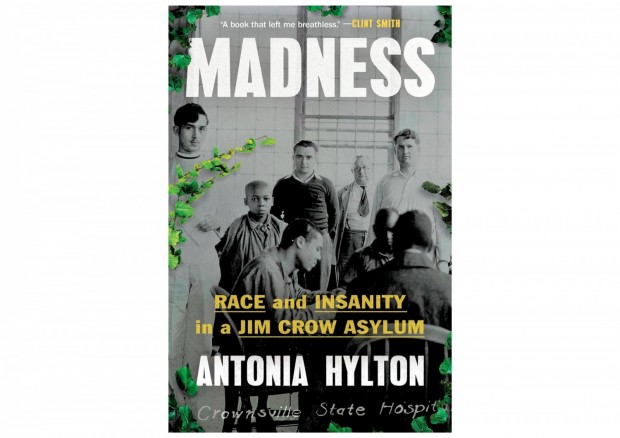New Book Sheds Light on Racism in Mental Health Facility Amid Jim Crow Oppression

Explore the chilling history of racism in mental health facilities during the Jim Crow era with Antonia Hylton's new book, "Madness: Race and Insanity in a Jim Crow Asylum." (Photo : Amazon/Antonia Hylton)
Harvard University's 2011 lecture, "Madness in Medicine," proved pivotal for first-year student Antonia Hylton. The lecture, delving into the history of modern psychiatry, sparked her curiosity and led her on a mission to explore the untold stories of Black individuals in the context of mental illness.
Hooked on the topic, Hylton embarked on a decade-long journey of independent exploration. She meticulously combed through archival research, focusing on historical accounts of mental illness. Hylton gathered oral histories from survivors of mental health facilities. In this pursuit, she discovered the often overlooked experiences of Black individuals, including her own family members, revealing the generational impact of mental trauma.
Crownsville Hospital's History
Hylton's findings and personal revelations are intricately woven into her first book, "Madness: Race and Insanity in a Jim Crow Asylum." The 368-page narrative unfolds the chilling history of Crownsville Hospital, previously known as the Maryland Hospital for the Negro Insane.
The story takes us back to March 1911 when a dozen Black men were marched into a Maryland forest to construct what would become Crownsville Hospital. From a work camp, it transformed into a small city encompassing 1,500 acres. Over time, the institution became a place of struggles related to slavery, racial integration, and civil rights, reaching a peak population of 2,700 patients.
Having closed its doors in 2004, as Hylton emphasizes, Crownsville Hospital's remaining records 'tell us a uniquely American story.' In an interview with NBC, Hylton shares her extensive research process, blending archival records, oral histories, and articles from historic Black-owned newspapers and mainstream publications.
READ ALSO: 'An American Story' Illustrator Wins 2024 Coretta Scott King Award
Insights From the Records
Hylton reflected on the emotions she experienced while delving into the records. The shocking racism embedded in doctors' notes, the use of racial slurs, and instances of mistreatment in clinical settings painted a disturbing picture. A Baltimore Afro-American newspaper wrote about a patient being bludgeoned by a guard in 1923. The records contained specific incidents highlighting the harsh realities faced by those within the asylum.
Hylton noted that while asylums faded from view by the end of the 20th century, prisons and jails increasingly became de facto treatment facilities for individuals with mental illness. Hylton expressed her hope that "Madness" will shed light on the broken mental healthcare system and the intertwining issue of incarceration as a form of treatment. The history of Crownsville, she argued, serves as a window into the past and future of mental healthcare for Black Americans and beyond.
Shifting Perspectives on Mental Health Stigma
Hylton reflected on the stigma surrounding mental health conversations, especially within communities of color. She emphasized how understanding the historical exclusion from proper mental healthcare has shaped her empathy, offering insight into the reluctance of her family members to engage in such discussions.
Hylton expressed her desire for the book to inspire judgment-free discussions and increased empathy. In the wake of the pandemic, she emphasizes the need for understanding and addressing mental health challenges, especially among young people concerned about the world's state and its impact on their future. The overarching message is a call to action for a better future for mental healthcare.
RELATED ARTICLE: Texas Historical Commission Removes Books About Slavery as Urged by Historian Michelle Haas
© 2023 Books & Review All rights reserved.
Popular Now
1
Books to Read After 'Fourth Wing': Top Picks for Fantasy and Romantasy Fans

2
‘The Secret Public’ by Jon Savage Book Review: An Insightful Look Into the LGBTQ Influence

3
Stephanie Regalado's 'If They Only Knew' Column Is Now A Book, Unleashing 60 Anonymous True Stories to Empower Women

4
'No Wire Hangers' Scene That Almost Did Not Happen: New Book Reveals Faye Dunaway's Struggles

5
Rare First Edition of Aphra Behn's Novel 'Oroonoko' Discovered in Kent: A Historic Literary Find

Latest Stories
Book Reviews
‘The Secret Public’ by Jon Savage Book Review: An Insightful Look Into the LGBTQ Influence

Book News
Stephanie Regalado's 'If They Only Knew' Column Is Now A Book, Unleashing 60 Anonymous True Stories to Empower Women

Book News
'No Wire Hangers' Scene That Almost Did Not Happen: New Book Reveals Faye Dunaway's Struggles

Book Reviews
‘The Perfect Couple’ by Elin Hilderbrand Book Review: A Captivating Summer Mystery

Book News
New Book ‘The Franchise’ Reveals Penguins President Kyle Dubas’ ‘Biggest Mistake’ as Maple Leafs GM











